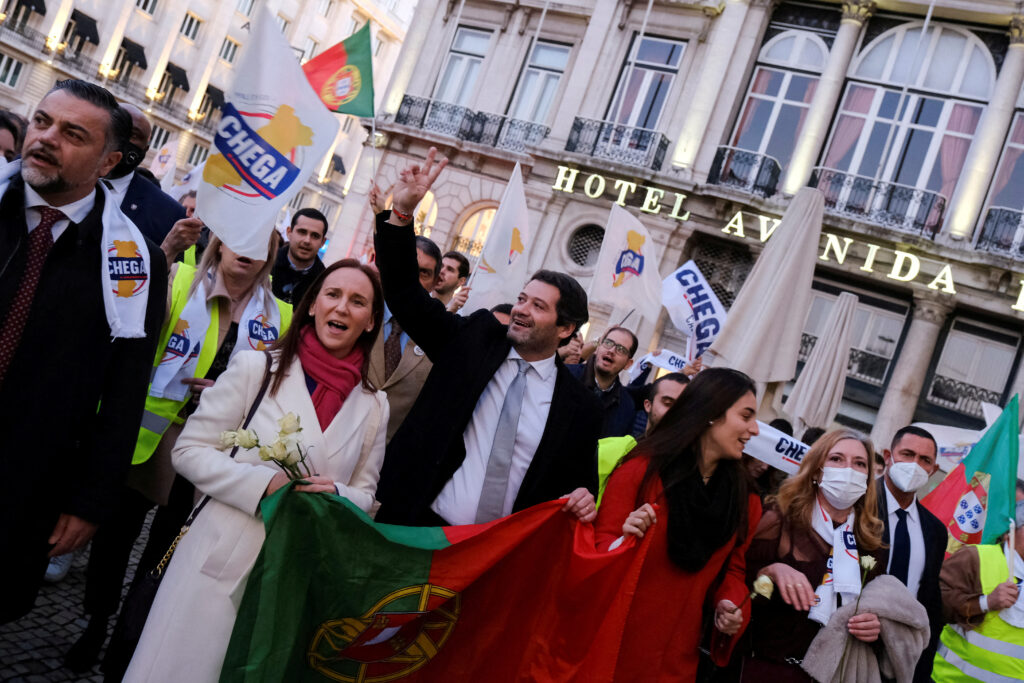By Satyaki Chakraborty
Portugal, a very important member of the European Union with a strong economy, is going for national elections next Sunday, May 18 to elect its 230 member Parliament. The 2025 elections will be the third one in the last three years showing the fragility of the coalition governments. No single political party is in a position to get majority in Parliament on its own.
In the last elections held in March 2024, the rightwing Democratic Alliance (AD) topped with 80 seats out of the total of 230 in Parliament. AD was followed by the Socialist Party led by Pedro Nano Santos with 77 seats while the far right Chega got 50 seats. Portuguese Communist Party got only 4 seats and the Left Bloc just 5. AD formed the government on its own as the single largest party refusing to form any coalition with the far right Chega which improved its position to 50 seats from its earlier tally of only 12.
Latest opinion polls reveal that the ruling party AD is at 32 per cent as against PS’s 28 per cent while the far right Chega may get 19 per cent of the votes and the Portuguese Communist Party’s vote share is put at below 5 per cent. This means that AD is far better placed compared to the 2024 elections when there was a close fight between AD and PS.AD got 28 per cent of the votes while PS got 27 per cent.
The political scenario in Portugal after the last national polls had some similarities with Germany where the largest party CDU did not form any coalition with the far right AFD but opted for a three party coalition of CDU – the earlier ruling Social Democratic Party and the Greens. CDU leader Frederick Merz is now the German Chancellor taking oath on May 7 this year promising to fight U.S. President Trump’s policies as also the far right AFD.
The AD government headed by the new Prime Minister Luis Montenegro was doing well after taking over in March 2024, but early this year, a big scandal came to light involving the PM and his family. The Portuguese press began reporting on Spinumviva, a data protection consultancy firm the prime minister founded in 2021. When the firm was launched, Montenegro was an entrepreneur with no active political role, and he transferred ownership of the company to his wife and sons the following year. But questions were raised as to whether the center-right politician personally benefited from the consultancy, whose clients include several companies that have contracts with the government.
Although Montenegro denied any conflict of interest, the opposition accused the prime minister of indirectly enriching himself while serving atop the country’s executive branch. The far-right Chega group and the Portuguese Communist Party filed parliamentary censure motions against the government both of which failed. But finally the PM resigned and the President called for a snap election on May 18.
The Portuguese elections are being closely watched on both sides of the Atlantic during a period when U.S. president Donald Trump is in a tariff war as also a war on security with Europe. Trump is encouraging far right parties to expand in different European countries. In Portugal, Trump advisers are backing the far right Chega which has expanded its influence in a big way in the last one year.
“Portugal is a laboratory for the electoral year in Europe,” say the Lisbon based political analysts.. Under the leadership of Antonio Costa, the Socialist Party ran a government for many years with the support of the Left parties including the Communist Party which is quite strong among the trade unions. Former Prime Minister Costas had high credibility and he steered the course of the economy during covid years with success. Portugal’s economic performance was appreciated by EU as also the financial institutions.
Costa’s replacement as head of the Socialist Party, Nuno Santos, resigned as infrastructure minister at the end of 2022 over a scandal surrounding Portugal’s state-owned airline company, TAP. Both the mainstream political parties were tested by the people in the government. Chega took the campaign to a higher plank by telling the voters that they offer an alternative. The social media helped them in spreading disinformation about the activities of the migrants to show them in poor light.
The 63 year old Antonio Costa who has his ancestry in Goa in India ruled as Prime Minister since 2015.The last Socialist Party led government was formed after January 30, 2022 elections when the Socialist Party on its own got majority of the 230 member Parliament and ruled without depending on other left wing parties. After his resignation on November 7 2023, President announced the snap polls on March 10, 2024 which led to the present AD government.
As regards the Left Bloc and the Portuguese Communist Party, both were allies of the Prime Minister Costa before the January 30, 2022 elections. PCP which has a big base among the trade unions in Portugal withdrew its support to the last Costa government over concessions to labour in the budget and that led to early elections leading to further consolidation of the Prime Minister Costa.
The March 10 elections in 2024 further marginalized the Left bloc and the Communist Party. The number was very small. The PCP got 4 seats and the Left ft bloc 5. The fourth placed Party is also a conservative party. Earlier the Left emerged as the third largest group. That situation changed after January 2022 elections. The process of rightwing shift and left marginalization continues in Portugal.
The PCP which led the struggle against the fascist Salazar, was in the front of the formation of army led government that took place in 1975. The wrong policies adopted by the PCP in dealing with the Socialist Party in that pro-PCP army rule led to reverses in the elections held to elect a new parliament. Still the PCP had considerable influence in the political arena of Portugal till 2022. The relationship with the PS soured during the last phase of Antonio Costa’s rule. The far right forces have strengthened in a big way in the last five years as per trends in other European countries. The PCP leadership is making all efforts to restore their earlier stature in new Parliament. May 18 results will show whether the present trends get reversed. (IPA Service)

 Does Presidential Reference Contain ‘Substantial Questions Of Law’
Does Presidential Reference Contain ‘Substantial Questions Of Law’ 